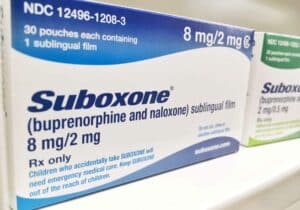Adderall, a medication combining amphetamine and dextroamphetamine salts, falls under the category of Schedule II controlled substances due to its high potential for addiction. It is commonly prescribed for treating attention-deficit/hyperactivity disorder (ADHD). Despite its therapeutic benefits, there’s a notable risk associated with its misuse and abuse.
The danger with Adderall is particularly pronounced when it’s used by individuals who do not have ADHD or those taking it without a prescription. In such scenarios, Adderall can induce a state of euphoria, primarily because it triggers the release of an excessive amount of dopamine and other neurotransmitters in the central nervous system. This can pave the way to addiction and physical dependence. The risk of developing dependence increases with the duration of Adderall misuse. Consequently, stopping Adderall after extended misuse can lead to Adderall withdrawal symptoms, underscoring the importance of its careful and prescribed use.
What is Adderall Withdrawal?
When your body becomes physically dependent on Adderall, it means it has adjusted to the drug’s presence and depends on it for regular functioning. Should you suddenly decrease your intake or stop taking Adderall altogether, you’re apt to face withdrawal symptoms.
Withdrawal from Adderall can occur in anyone who has grown dependent on this central nervous system (CNS) stimulant, regardless of whether they’ve been using it as prescribed or misusing it. Even when used according to medical guidelines, prolonged use can result in a physiological dependency. Misusing Adderall amplifies the risk of both addiction and withdrawal symptoms when stopping.
An abrupt stop in taking Adderall may lead to an ‘Adderall crash’, a brief yet intense phase of withdrawal symptoms. This crash tends to begin within a few hours of the last dose and may persist for several days. It’s marked by both physical and mental exhaustion, along with a significant dip in mood.
Long-term use of high doses of Adderall can culminate in physical dependence. As tolerance builds up, larger or more frequent doses become necessary to replicate the initial effects. For those who have developed a tolerance, Adderall may lose its efficacy in enhancing focus or energy. Discontinuing the medication in these situations can result in cognitive or functional difficulties.
These symptoms signify the onset of withdrawal, commonly seen in those who have consumed high doses regularly over an extended period. Adderall withdrawal is the body’s process of adapting to the absence of the drug. While this withdrawal is usually not life-threatening, it can provoke suicidal thoughts in some individuals, highlighting the necessity of cautious management and support during this period.
Adderall Withdrawal Symptoms
The process of withdrawing from Adderall can present a range of symptoms, impacting both the mind and body.
Common Adderall withdrawal symptoms include::
- Feelings of depression
- A sense of agitation or restlessness
- Overall fatigue or tiredness
- Experiencing vivid and often unsettling dreams
- Alterations in normal sleep patterns
- An increase in appetite
- Slower cognitive processing or thinking
- Various physical discomforts or pains
In instances where high doses of Adderall have been used, individuals might face more acute withdrawal symptoms such as:
- Experiencing psychotic symptoms
- Developing feelings of paranoia
- Disorganized or disordered thinking
- Hallucinations
Being mindful of these symptoms is crucial, as they underscore the complexities of withdrawing from Adderall, particularly for those who have used higher doses of the drug. If you or someone you know is grappling with Adderall addiction, it’s important to seek professional help. Contact our Adderall addiction treatment center today to start the journey towards recovery.
Adderall Withdrawal Timeline
The experience of withdrawing from Adderall can vary from person to person, but there’s a typical timeline that many undergoing recovery might encounter. Knowing what to expect, particularly within the context of a detox program like the one in Jacksonville, FL, can make the process feel less intimidating and more manageable.
Initial Phase: The First Day of Adderall Withdrawal
Withdrawal symptoms generally start within six hours of the last dose of Adderall, as the drug’s effects begin to wane. By the 24-hour mark, as Adderall fully exits the system, common symptoms such as anxiety and fatigue often emerge.
Days 2-4: The Peak of Adderall Withdrawal Symptoms
The most intense withdrawal symptoms usually peak within the first three days. This period may be marked by heightened anxiety, depression, and a sense of hopelessness. Fatigue may increase, yet it’s often coupled with disturbed sleep and nightmares. Those withdrawing from extended or heavy Adderall use might also experience hallucinations and paranoia.
One Week of Treatment
Around the one-week mark, the most severe physical withdrawal symptoms tend to lessen. However, emotional and psychological challenges like mood fluctuations may persist. It’s also typical for individuals to undergo social withdrawal as the brain adjusts to functioning without Adderall.
Beyond Week One
After the first week, treatment programs usually shift focus towards therapy and strategies for relapse prevention, as physical withdrawal symptoms largely diminish. However, for some, especially those with a history of intense or long-term Adderall use, pre-existing mental health conditions, or other chronic health issues, withdrawal effects may linger for weeks and require continued medical attention and support.
How Long Does Adderall Withdrawal Last?
Ceasing Adderall usage initiates an acute withdrawal phase that generally spans up to five days. After this initial period, a prolonged withdrawal phase may follow, lasting for several weeks or possibly months. In this extended phase, the Adderall withdrawal symptoms are mainly psychological.
How to Prevent Adderall Withdrawal
Minimizing the risk of Adderall withdrawal is key and involves a focus on reducing dependency and carefully transitioning off the medication. Here are some effective steps to consider:
- Follow Prescription Guidelines: Strictly adhere to the dosing and timing prescribed by your healthcare provider. Avoid altering the dose or frequency without consulting a medical professional.
- Maintain Clear Communication: Keep an open and honest dialogue with your healthcare provider about your experience with Adderall, discussing both its effectiveness and any side effects you encounter.
- Schedule Consistent Check-ups: Regularly meeting with your healthcare provider is vital for monitoring your progress and making necessary adjustments to your treatment plan.
- Avoid Misuse: Refrain from using Adderall in ways not prescribed, such as taking higher doses, using without a prescription, or for non-medical purposes, as this can increase the risk of dependency and withdrawal. Always use the medication as directed.
- Consider Taking Breaks: Discuss with your healthcare provider the feasibility of periodic breaks from Adderall, particularly for ADHD treatment, to prevent building tolerance and dependency.
- Lead a Healthy Lifestyle: Engaging in regular physical activity, maintaining a balanced diet, and ensuring adequate sleep can bolster your overall health and mental well-being.
- Incorporate Holistic Practices: Employ stress management, mindfulness, and relaxation techniques to enhance your ability to cope with ADHD symptoms and reduce reliance on medication.
- Engage in Therapy: Counseling or psychotherapy can be highly beneficial, offering coping strategies, time management skills, and organizational techniques that aid in managing ADHD symptoms without sole reliance on medication.
- Regular Progress Reviews: Periodically reevaluate your treatment plan with your healthcare provider to ensure it continues to meet your needs effectively.
- Stay Educated: Being informed about the risks and benefits of Adderall enables you to make more informed decisions regarding your treatment.
If you suspect a developing dependence on Adderall, it’s crucial to seek immediate professional help. An Adderall detox center can be instrumental in easing withdrawal symptoms and providing the necessary support and resources for lasting recovery if addiction is a concern.
Signs of Adderall Overdose
There’s been a notable increase in emergency hospital visits due to stimulant overdoses, including those involving Adderall, affecting various age groups. Engaging in risky behaviors, such as snorting Adderall or mixing it with other substances, significantly increases the risk of an overdose. Overdoses can occur from taking too much Adderall at once or from a gradual build-up in the body due to extended or excessive usage. While not all overdoses are fatal, they pose a severe health risk.
Key signs of an Adderall overdose include:
- Chest discomfort or pain
- Accelerated heartbeat and rapid breathing
- Intense tremors or uncontrolled shaking
- Experiencing nausea and vomiting
- Feeling dizzy or fainting
- Losing consciousness
- Potential stroke
In severe cases, convulsions, coma, and even death may occur, and the risk of cardiac arrest increases due to heightened blood pressure and heart rate. Although there’s no specific cure for a stimulant overdose, urgent medical care is crucial.
To prevent an Adderall overdose, it’s essential to use the medication only as directed by a healthcare professional and adhere to the prescribed dosages. For parents concerned about their children’s Adderall use for attention deficit disorders, considering alternative approaches such as nutritional programs and behavior modification therapies could be beneficial.
Adderall Detox
Detoxification, the process of eliminating Adderall from the body, initiates the onset of withdrawal symptoms. These symptoms can disrupt everyday activities and increase the likelihood of a relapse. This makes support during the detox phase vital for some individuals.
A widely used method in Adderall detox is gradual tapering, where the dosage of the medication is slowly reduced over time. This approach is effective in lessening the intensity of withdrawal symptoms. In inpatient rehab settings, addiction specialists are equipped to provide the necessary guidance for safely decreasing Adderall doses.
Alternatively, some individuals choose to stop Adderall use abruptly, a method known as ‘cold turkey’. Achieving successful withdrawal in this manner is often more feasible in a rehab facility or with the support of a counselor, as this can significantly aid in preventing a relapse.
Is Adderall Withdrawal Dangerous?
Withdrawing from Adderall can pose serious risks, especially when severe psychological symptoms like psychosis or hallucinations are involved. These intense psychological reactions can detach a person from reality, creating significant danger to both themselves and others. Experiencing psychosis during withdrawal can lead to unpredictable and potentially unsafe behaviors. Therefore, undergoing Adderall withdrawal in a medically supervised setting is strongly recommended. In such environments, healthcare professionals can closely observe and manage symptoms, offering immediate and appropriate interventions, thereby considerably reducing the risks associated with withdrawal.
Can You Die from Adderall Withdrawal?
While death from Adderall withdrawal is uncommon, it remains a grave concern, primarily due to severe psychological effects like psychosis. In such states, individuals might engage in behavior that poses a risk to themselves or others. The danger arises not directly from the withdrawal symptoms but from the hazardous behaviors that might result from altered mental states, including self-harm or accidents. In extreme scenarios, such behaviors can be life-threatening. Hence, managing withdrawal under professional supervision is essential to ensure safety and address any severe symptoms effectively.
Stopping Adderall Cold Turkey
Discontinuing Adderall suddenly, known as going ‘cold turkey’, is typically not recommended, particularly for individuals who have developed a physical dependency on the medication. When the body becomes reliant on Adderall, abruptly stopping its use can lead to a variety of withdrawal symptoms, some of which can be intense and challenging. These symptoms may range from strong cravings and mood disturbances to depression and physical illness, creating a situation that can be hard to manage without adequate support. A more advisable strategy is the gradual reduction of the drug, overseen by medical professionals. This method allows the body to adapt slowly to the absence of Adderall, thereby lessening the severity and potential risks associated with Adderall withdrawal symptoms.
Adderall Withdrawal Treatment at Iris Wellness Group
In the serene suburbs of Chattanooga, TN, Iris Wellness Group is a haven for those fighting Adderall addiction. Our Adderall addiction treatment center offer a nurturing environment conducive to recovery.
Our compassionate Adderall outpatient program offers top-tier medical outpatient Adderall detox, ensuring a safe and effective detox process. Once free from addictive substances, you can seamlessly transition into one of our specialized outpatient treatment programs at Iris Wellness Group, designed to address substance use disorders:
- Outpatient Detox: Combines the convenience of living at home with the effectiveness of regular treatment sessions, ideal for integrating recovery with your everyday life.
- Outpatient Rehab: This program is really flexible, designed to work around your daily schedule.
- Partial Hospitalization Program (PHP): It’s structured but you don’t have to stay overnight. It’s like getting intensive treatment during the day while you live at home.
- Intensive Outpatient Program (IOP): This one offers deeper, more focused care but still lets you keep up with your everyday responsibilities.
- Dual Diagnosis Treatment Program: This is specially for people who are dealing with both addiction and mental health issues at the same time.
Our Adderall treatment programs incorporate a variety of interventions:
- Medication-Assisted Treatment (MAT): This uses medicines to help reduce withdrawal symptoms and the urge to use opioids.
- Psychotherapy: This is all about tackling the mental and emotional factors that play a part in addiction by using CBT or DBT.
- Group Therapy: Here, you’ll get support and learn with others who are going through similar experiences.
- Individual Therapy: You’ll get one-on-one support that’s tailored just for you.
- Family Therapy: This helps fix and strengthen your relationships with family, which is super important.
- Holistic Therapies: These focus on improving your overall health – body, mind, and spirit.
- Aftercare: We’ll keep supporting you even after your treatment is over.
Begin your path to recovery with Iris Wellness Group. Our experienced team is here to guide and support you. For more information or to start Adderall addiction treatment, reach out to our admissions team at 423-460-9766.












